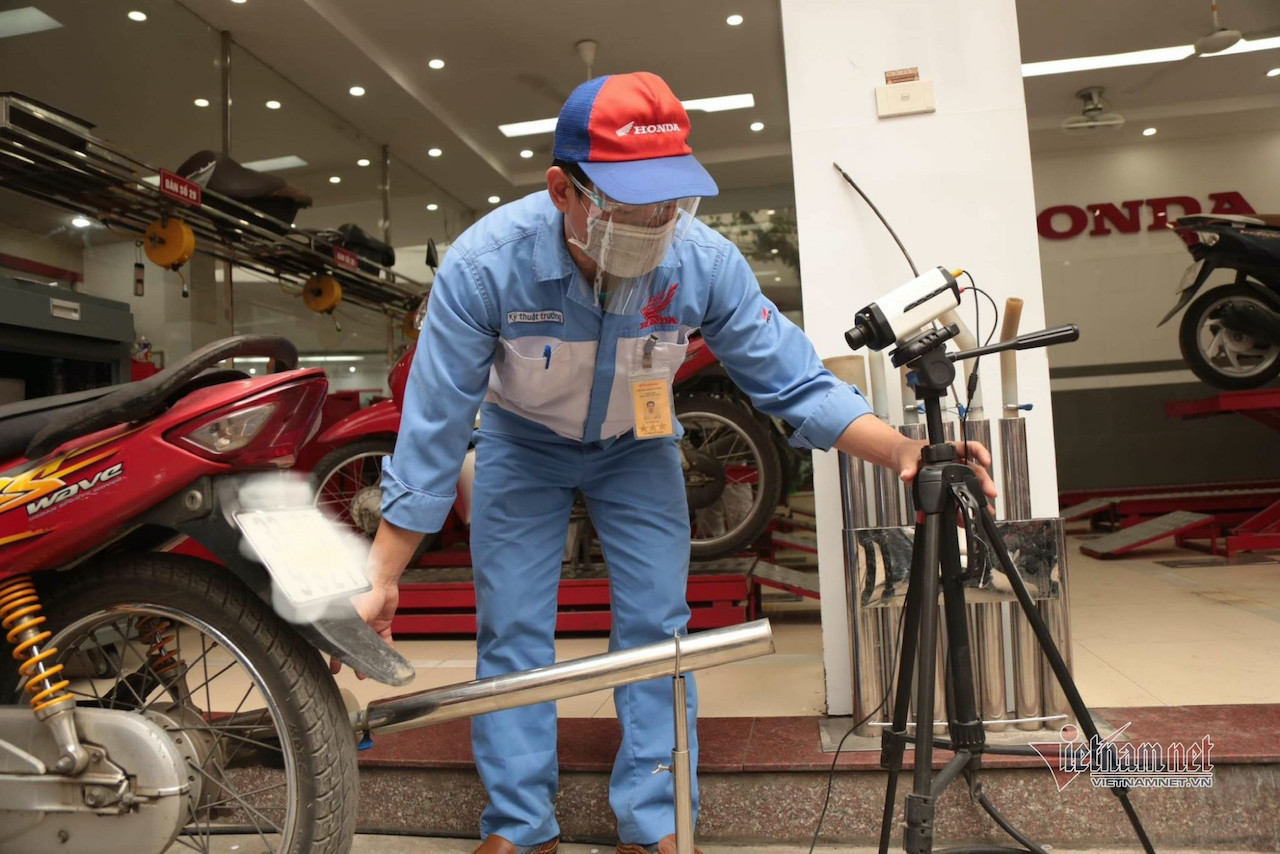
Motorcycles account for 80-90% of carbon monoxide (CO) and hydrocarbon (HC) emissions, as well as 50% of nitrogen oxide (NOx) emissions from motor vehicles, significantly contributing to air pollution in urban areas. Experts emphasize that emission inspections must be conducted uniformly across the country to ensure environmental protection and public health.
Vietnam currently has about 74 million registered motorcycles, with an estimated 56 million over five years old, according to the Vietnam Association of Motorcycle Manufacturers. In Hanoi alone, there are approximately 7 million motorcycles, half of which are older models manufactured before 2000.
Older motorcycles tend to emit pollutants above permissible levels. A 2021 random inspection of over 5,200 motorcycles older than five years revealed that more than 54% failed to meet Tier 1 national emission standards, and over 60% failed Tier 2.
To address this issue, the Ministry of Transport recently issued Circular 47, requiring motorcycles under five years old to be exempt from emission inspections. Motorcycles aged 5-12 years will need inspections every two years, while those older than 12 years will require annual inspections.
Dr. Khuong Kim Tao, former Deputy Chief of the National Traffic Safety Committee Office, supported the proposed inspection cycles, emphasizing their importance in transitioning from fossil fuels to cleaner energy sources.
"The inspection cost of approximately 50,000 VND per motorcycle is not significant, especially with the proposed two-year cycle for motorcycles aged 5-12 years," Dr. Tao noted. He added that regular inspections could help identify excessive emissions early, enabling vehicle owners to address technical issues.
Hanoi resident Nguyen Van Cuong suggested further refining the inspection cycles: biennially for motorcycles aged 5-7 years, annually for those aged 7-10 years, and semi-annually for motorcycles older than 10 years.
Some experts have proposed initiating motorcycle emission inspections in major cities like Hanoi and Ho Chi Minh City, where traffic density is highest. However, Dr. Tao argued that emissions control should be implemented nationwide.
"The same motorcycle could travel from Tuyen Quang to Hanoi within a day. Without a nationwide system, controlling emissions becomes inconsistent and ineffective," he explained.
To gain public support, Dr. Tao recommended providing financial assistance for vehicle repairs or transitioning to electric motorcycles, especially for low-income workers who predominantly use older motorcycles.
Additionally, investments in public transportation should be prioritized to reduce dependence on personal vehicles, particularly in major urban areas like Hanoi and Ho Chi Minh City.
N. Huyen